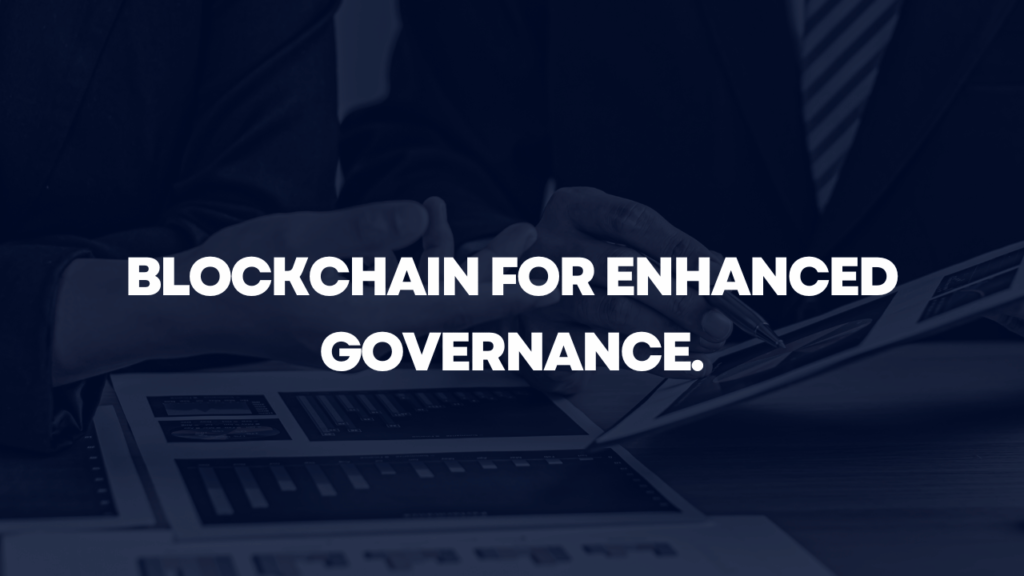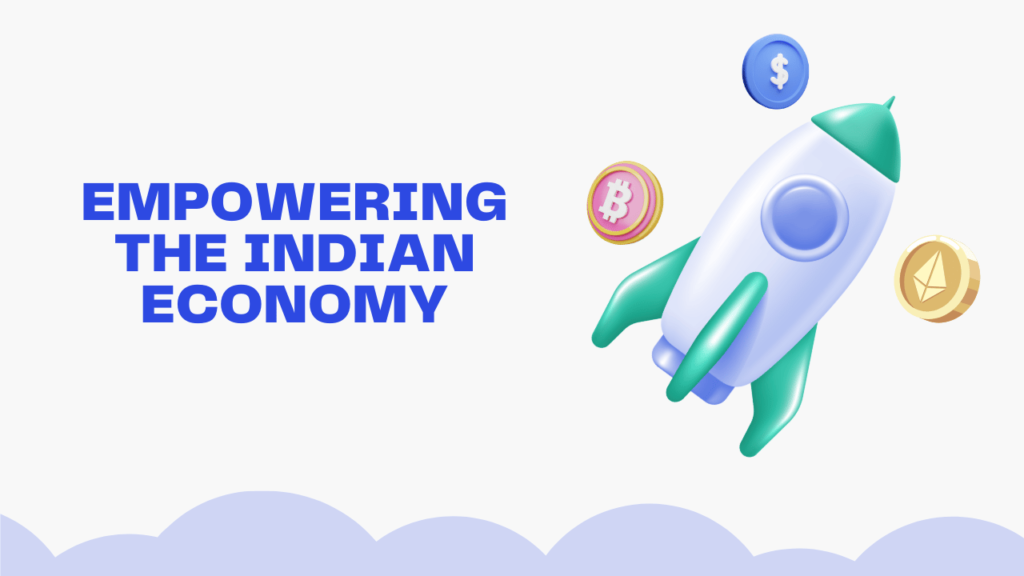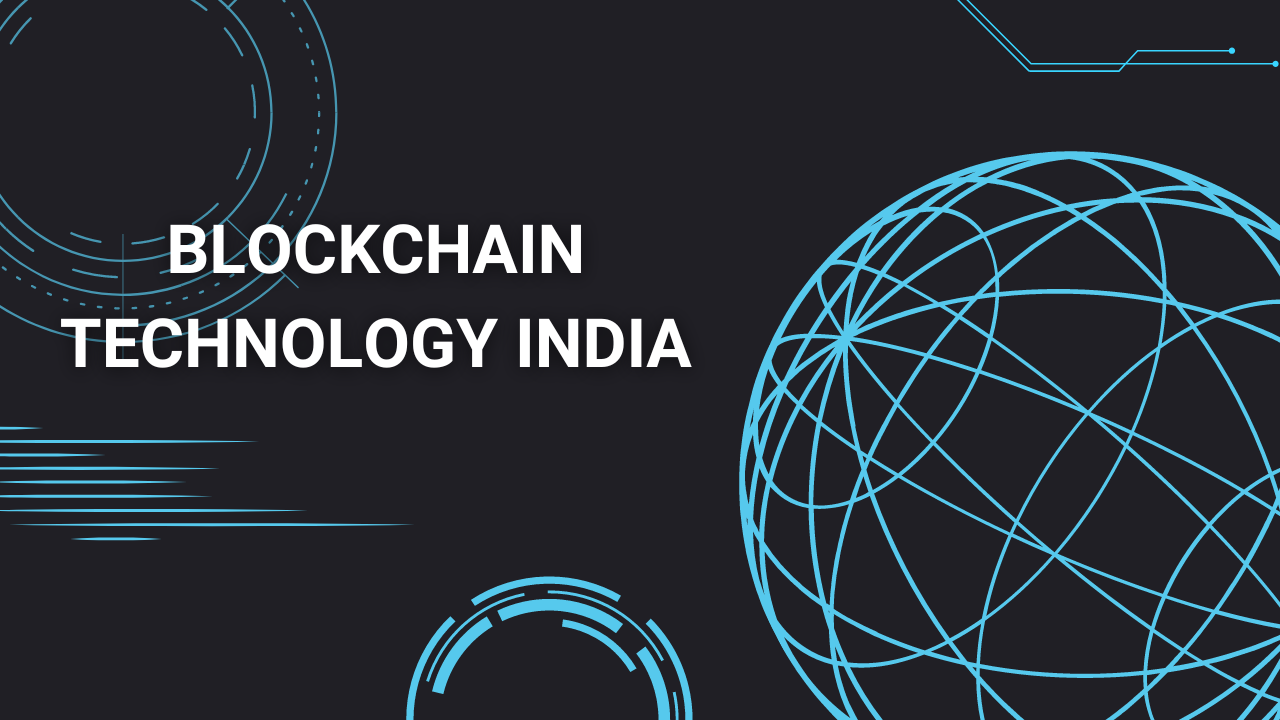Blockchain technology India is about to enter a revolutionary phase, which bodes well for its future and its many potential uses. Blockchain technology has come a long way from its humble beginnings as a cryptocurrency, which Satoshi Nakamoto popularized with Bitcoin. Now it offers a plethora of flexible applications that could change the game for safe, decentralized transactions between individuals. As a result, numerous Indian sectors, including banking, insurance, and the public sector, are investigating blockchain solutions to improve the openness and efficiency of tasks like electronic health records management, farm insurance, vehicle lifecycle management, and land title registry.
The infrastructure for implementing blockchain technology is already in place in India, thanks to programs like Aadhaar, UPI, e-Sign, and Digilocker, which have expedited the country’s digital transition. There has been a sea change towards adopting blockchain technology, as seen by the government’s proactive approach to using it for better governance and service delivery and the private sector’s investment in blockchain firms.
Blockchain for Enhanced Governance

Blockchain and Aadhaar Integration
Public service delivery in India stands to be revolutionized with the integration of blockchain technology with Aadhaar, the country’s pervasive biometric identity system. The goal of this integration is to make government services more effective and accessible to the people of India while also securing their personal data and improving their privacy.
Blockchain in Public Sector Innovation
Government administration in India is about to undergo a sea change due to the implementation of blockchain technology. Complex government procedures can be simplified, fraud can be reduced, and trust in public services can be increased by using blockchain technology, which ensures data integrity and security.
Secure Transactions with Blockchain
Particularly helpful for India’s digital economy is blockchain’s capacity to enable safe and transparent transactions. It promotes a more trustworthy ecosystem for digital transactions by standardizing financial processes and guaranteeing data protection.
Efficiency in Governance through Blockchain
Streamlining government operations is possible with blockchain technology. Blockchain technology has the ability to improve the delivery of public services, decrease corruption, and automate and secure bureaucratic operations, all while reducing delays.
Blockchain for Transparent Land Registry
In India, land registry and property administration are two areas where blockchain technology shows great promise. Property disputes and fraud have persisted for a long time, but blockchain technology, which creates an immutable, distributed database of land records, could be the answer.
Revolutionizing Indian Industries with Blockchain
Blockchain in Indian Banking and Finance
By making financial transactions more efficient, cheaper, and more secure, blockchain technology is about to radically alter India’s banking and finance industry. Both operational simplification and new opportunities for financial inclusion are on the horizon as a result of this change.
Enhancing Indian Agriculture with Blockchain
Blockchain technology could have a big impact on India’s agricultural economy. The use of blockchain technology in the supply chain has the potential to improve efficiency and transparency by making it easier to track agricultural products.
Blockchain Solutions for Indian Healthcare
Blockchain technology provides healthcare organizations with efficient and safe ways to manage electronic health records. This has the ability to revolutionize healthcare delivery in India by guaranteeing the privacy, confidentiality, and accessibility of health data.
Innovation in Indian Education through Blockchain
The verification procedure for academic credentials can be made much easier with blockchain technology, which has the potential to radically alter the education sector. The likelihood of fraud and the reliability of degrees can both be greatly enhanced by this.
Blockchain for Sustainable Development in India
There is much hope that blockchain technology could help India achieve its sustainable development goals. Blockchain technology has the potential to significantly contribute to sustainability efforts by increasing openness and efficiency in areas such as energy, waste management, and resource distribution.
Empowering the Indian Economy

The use of blockchain technology has the potential to significantly improve India’s economic situation. Many parts of the Indian economy, including online purchases and international money transfers, stand to benefit from blockchain technology’s increased efficiency, security, and openness.
Digital Transformation and Blockchain Integration
In a big way, blockchain technology is supporting India’s economic digital transformation. A stronger digital economy is being promoted by this integration, which is simplifying processes across industries, lowering costs, and improving security.
Blockchain in Cross-Border Transactions
The use of blockchain technology has made international money transfers more efficient, less expensive, and safer. Since this can greatly simplify and lower the cost of remittances, it is especially helpful for India, a nation with a large diaspora.
Blockchain Investment and Startup Ecosystem
Numerous firms in India are concentrating on developing cutting-edge blockchain applications, thanks to the influx of blockchain funding in the country. Not only is this thriving ecosystem propelling technical progress, but it is also drawing attention to India’s blockchain potential on a global scale.
Blockchain and Intellectual Property Rights
Innovative methods for managing IP rights in India can be found in blockchain technology. Protecting creator rights and promoting fair use standards, blockchain ensures the authenticity and secures the circulation of digital information.
Strengthening Sectoral Efficiencies with Blockchain
Immutable records, improved data security, and streamlined operations are just a few ways in which blockchain technology is changing the face of sectoral efficiency.
Blockchain in Supply Chain and Logistics
Supply chain and logistics applications of blockchain have the potential to radically alter the production-to-delivery tracking of items. All the way through the supply chain, this keeps things open, cuts down on waste, and boosts efficiency.
Enhancing Education with Blockchain
The security and efficiency of India’s educational system can be greatly enhanced with the help of blockchain technology, which can encrypt student records and simplify the verification process.
Blockchain for Environmental Sustainability
Improved carbon credit trading, better tracking of renewable energy usage, and more effective resource management methods are three ways in which blockchain technology might help India achieve environmental sustainability.
FAQs
What is blockchain technology?
Blockchain is a distributed ledger system that records transactions across various computers in an immutable way, making it impossible to change the recorded transactions in the past.
How can blockchain improve governance in India?
Public services can be made more effective and reliable with the help of blockchain technology, which can improve governance by increasing transparency, decreasing fraud, and simplifying administrative processes.
What role does blockchain play in India’s banking sector?
Better, more open financial services are the result of the implementation of blockchain technology in India’s banking sector, which has increased transaction security, decreased fraud, and simplified payment systems.
Can blockchain technology help Indian farmers?
Yes, blockchain technology can be of great assistance to farmers in India by facilitating safe and fair transactions, guaranteeing the traceability of agricultural products, and offering transparent solutions for supply chains.
Is blockchain technology being used in India’s healthcare system?
To improve healthcare service efficiency, safeguard patient data, and maintain electronic health records securely, blockchain technology is actually being considered by India’s healthcare sector.
Also Read: Fintech Blockchain: Benefits & Use Cases
Conclusion
Blockchain Technology India holds significant promise for solving complex issues across public services, business, and governance, as evidenced by the burgeoning interest in the technology within the country. With substantial investments flowing into India’s Web3 startup ecosystem, it is rapidly emerging as a key player in the global blockchain and digital asset landscapes. This technology has the potential to not only boost India’s GDP but also create new avenues for employment. Moreover, it is poised to revolutionize various sectors such as business-to-business (B2B), government-to-citizen (G2C), and government-to-government (G2G) services. The focus on enhancing transparency, accountability, and efficiency underscores a bright outlook for the adoption of blockchain in India’s future.

Timothy Jensen is an expert writer who specializes in the world of cryptocurrencies, including blockchain technology and Bitcoin. He has a passion for explaining complex topics in an easy-to-understand way. Timothy’s work aims to demystify the digital currency landscape for his readers.

